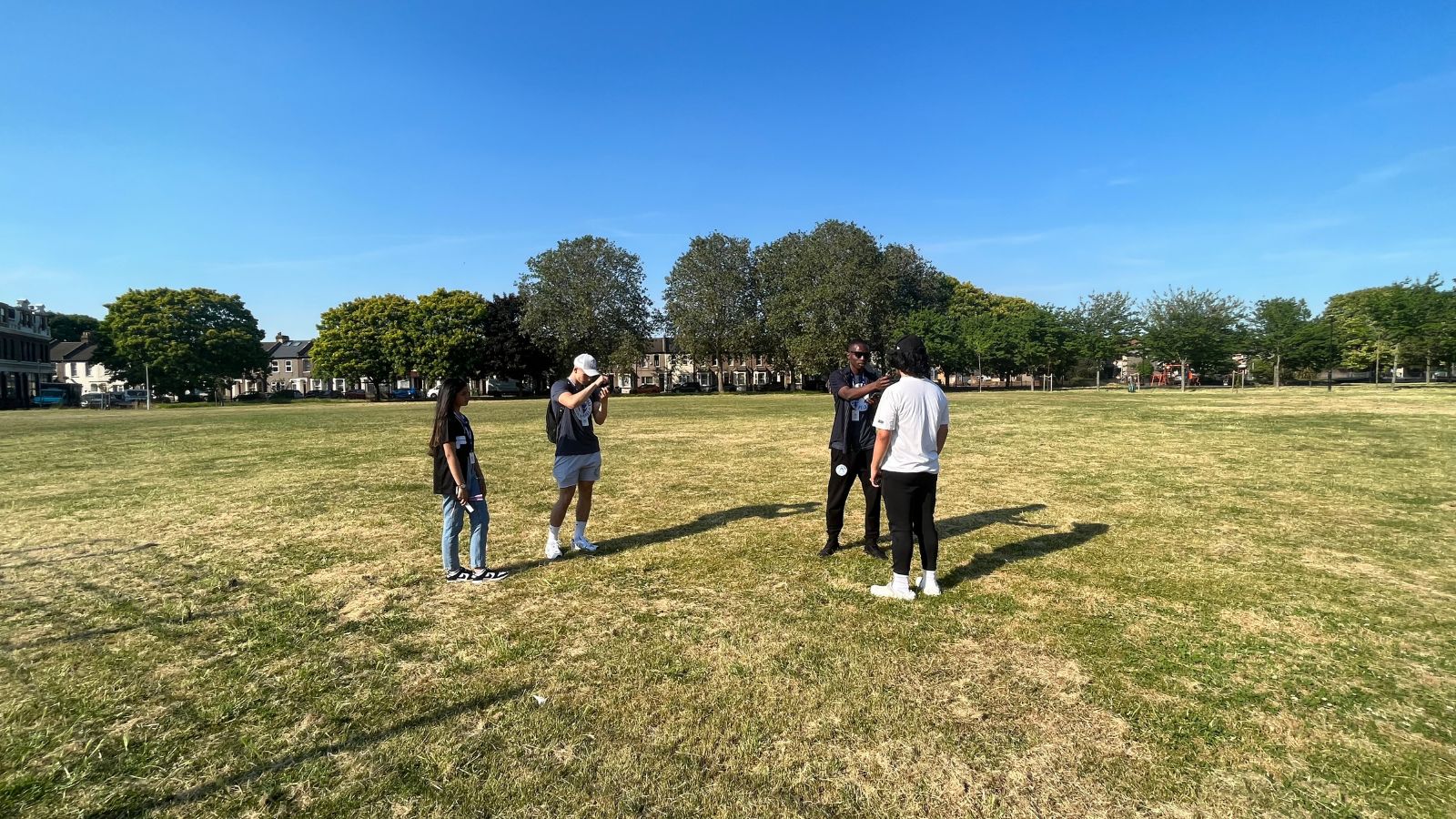Sarah Hussain is a medical student, writer and aspiring photographer who has been a Fight for Peace member for around three years, and is now also a member of the Young Creatives project.
In her most recent blog, Sarah highlights some of the effects negative stereotypes can have on young people, and how we as a society can help overcome the barriers these may put in young people’s way.
“Young people are our future. We hear this statement again and again, but is this how the young people of Newham are really made to feel?
Fight for Peace Young Creatives recently took to the local community to find out about some of the stereotypes of young people in Newham from young people themselves. Some responses were that they are ‘rebels’ who are ‘antisocial’ and ‘angry’.

This suggests that situations or experiences have caused them to develop this feeling. Writing these words brings a discomfort in me so I’m sure it does to you too, as it would to the young people who day in and day out have to live this life.
The most knowledgeable people within the field of psychology know that our mental well-being is hugely influenced by our behaviour, thoughts and feelings. Therefore we can understand how negative stereotypes can be hugely detrimental to a young person’s life. This can be in the choices they make, the people they surround themselves with, and the amount of value they give to their life.
A BBC article from 2014 states that more than two thirds of 14-17-year-olds believe negative portrayals of teenagers in the media are affecting their job prospects. This statistic highlights that after young people are exposed to these stereotypes, they begin to lose out on opportunities and cannot progress with their career.
It’s important we support and encourage our young people to keep striving and reminding them that they are stronger than all their struggles. It’s more often that we hear that we can’t do something than someone telling us we can. In moments when someone does cheer us on, it can feel that slight bit easier.
Just telling someone ‘you can’ means more than just a simple statement. It means ‘I know life can be difficult’. It means, ‘I have belief in you, even if you’re at your lowest point right now. It means, you’re capable of your goals and I acknowledge that.’
Personally as a young person myself I feel that I deal with more of society’s stereotypes at my lowest points. I’ve had to take time off education for personal reasons and in those periods I realised the huge stigma attached to young people who are out of education. It’s appalling.
You begin to have stereotypes like ‘useless’, ‘uneducated’ and ‘lazy’ attached to your name. Education is crucial but everything is always circumstantial, and we never know why someone is not in education. Not being in education does not equate to a failure and we need to remember that. Some of the most influential people worldwide left education early including Steve Jobs and Alicia Keys.
We should not judge someone’s capabilities by the school they attended or the grades they achieved. We should not judge someone’s capabilities by their family or friendships. Because maybe they never chose the school they went to. Maybe they never had the right teachers or right support to get the grades. Maybe there’s a reason why they have friends that seem to be a bad influence on them, who may one day have been the only people to hold them up.
Now, think about the last time you thought someone wasn’t going to get the grades, get the job, get accepted to that university; and then they did. Imagine them being reliant on your judgement. They would not have reached their aspirations.
Start being that person that believes in a young person and lets actively through our actions and words, allow young people to know that they are the future.”
